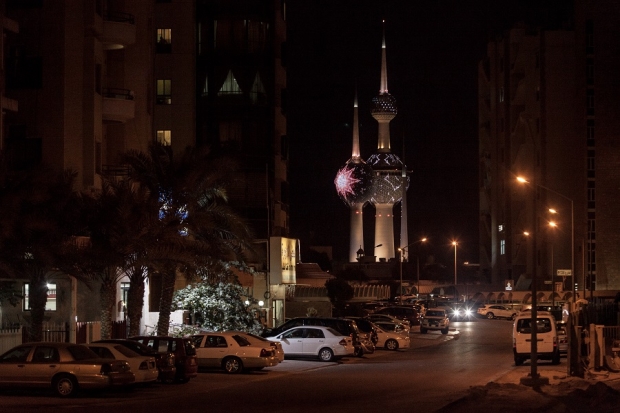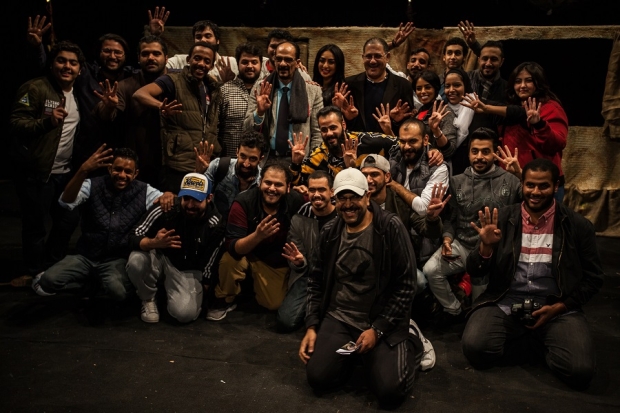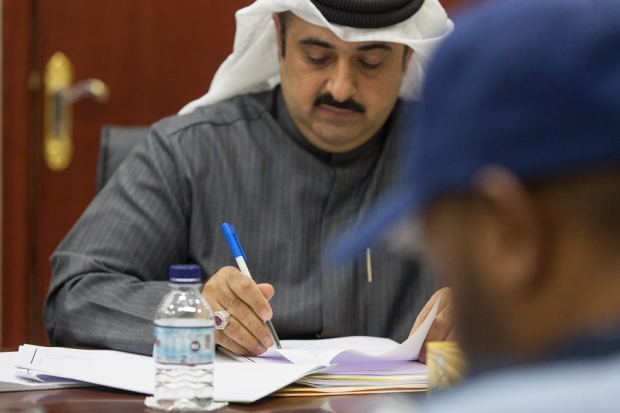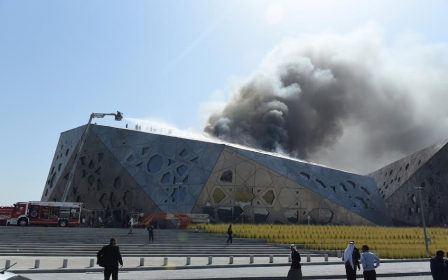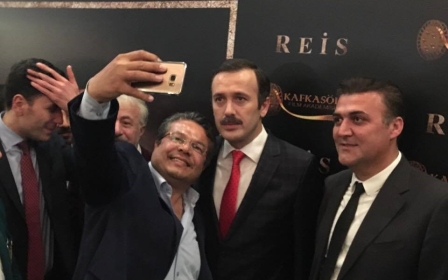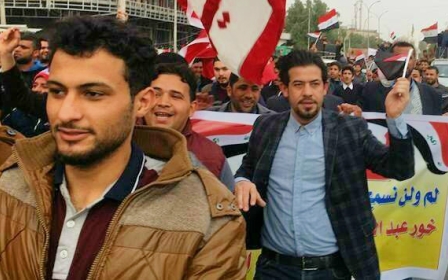Made in Kuwait: Surviving censorship in the filmmaking industry
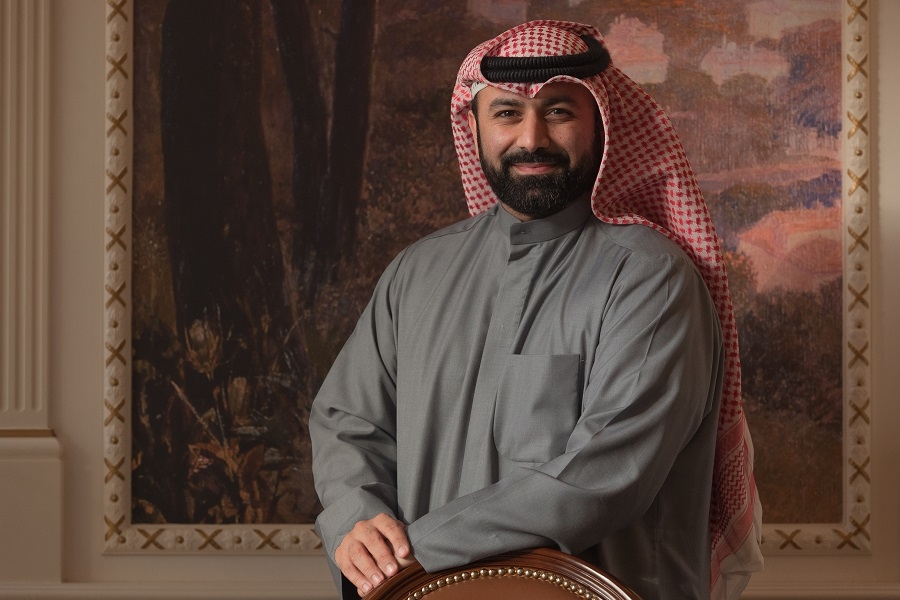
KUWAIT CITY - His beard and broad smile seem to hide noticeable artistic frustration. Abdullah Boushahri, 37, is a passionate Kuwaiti filmmaker and son of a Kuwaiti painter.
We meet in one of the capital city’s numerous malls, in a cafe decorated with massive paintings. The decorum looks like that of a film stage. Nevertheless, no one is shooting a movie here, as a number of Kuwaiti filmmakers have stopped making films. The reason? Powerful censorship, according to Boushari.
'If I want to win an award in Europe, I must be more creative and brave, but with censorship I cannot take chances'
- Abdullah Boushahri, filmmaker
As a child Boushahri used to film the everyday life of his family, as well as their travels around the world.
"These memories forged and influenced me. There was always a camera around me in my childhood." His award winning film, The Water, is about a war over this precious resource that occurred a hundred years ago in a small city in Kuwait, before oil was discovered. The IWC Filmmaker Award was presented to him at the Dubai International Film Festival (DIFF), so Boushahri has survived censorship before.
While censorship is said to preserve a politically correct voice in cinema, it is also accused of killing artistic spirit.
"They noticed a scene with desperate people who prayed for the rain to come. As it was a depiction of superstition, they asked me to make changes to the scene. There was a blind woman who was very aggressive and who cursed the people who prayed in vain because the rain did not arrive. They asked us to change this scene, too, to make it softer. I would be lucky if I won an award in Europe with this film. Because of the censorship, you must be very careful," reveals the filmmaker.
Invasion as a turning point
Boushahri admits he is a little tired of the filmmaking industry in Kuwait. After graduating with a degree in cinema in 2004 from Florida Atlantic University, he often dreams of international acclaim.
'Movies made under censorship are tasteless and colourless'
- Abdullah Boushahri, filmmaker
"If I want to win an award in Europe, I must be more creative and brave, but with censorship I cannot take chances," he says. "My purpose is not to criticise society or to offend religion, but to explore and to depict society from different perspectives. Movies made under censorship are tasteless and colourless," he says.
Kuwait’s cinema rode a wave of success when its first full-length film was released in 1972. Directed by Khalid al-Siddi, Bas ya Bahar - The Cruel Sea, takes viewers back in time to a Kuwait before oil was discovered and when fishing was the predominant means of survival.
The country used to be very active in the cultural and artistic scene of the region with its cinema and soap opera production. But according to Boushahri, after the Islamic revolution in Iran, resources that would have been used to support culture were instead diverted to support Iraq in its war against Iran.
The final blow to the arts took place when Saddam Hussein invaded Kuwait in August 1990. The country was devastated and artistic activity came to a stop. Traumatised by the invasion, Kuwait uses censorship, a tool deployed since the birth of the country, to avoid creating any diplomatic problems with neighbouring countries, according to Boushahri.
"The invasion by Iraq was the turning point. The state was focused on internal security and the country’s reconstruction. After that, there was the economic crisis of 2008. In parallel, there was the cultural, economic and intellectual boom of Dubai," Boushahri says.
Nowadays, according to influential Kuwaiti film critic Imad el-Nouwairy, 60, "no more than five Kuwaiti movies make it to our cinema screens every year".
Censorship for peace
Sitting at his desk at Lulua productions on the 10th floor of a luxurious skyscraper, 32-year-old scriptwriter Razi al-Shatti complains about the absence of dialogue with the censorship board.
"I would like to negotiate with them and ask them why they cut certain passages. It is good that they preserve the rules, but we would want an explanation," he says.
'We have to evoke symbols. They should not always know what we are speaking about, so we have to say it in a cunning way'
- Dhair Abdulredha, actor
Dhari Abdulredha, 32, an actor and colleague of Shatti, admits that he censors himself. "I have censorship in my head," he says. "Most of the time, I know what I am saying, and I pay attention so I do not need censorship."
"We have to evoke symbols. They should not always know what we are speaking about, so we have to say it in a cunning way. Naturally, I have the list of taboo subjects in mind," he adds smiling.
The red lines not to be crossed concern subjects connected to politics, sexuality, religion or extreme violence. Any film presenting an issue in an excessively negative way can be censored. Every local or foreign filmmaker who wants to shoot in Kuwait must have their scripts reviewed by the censors that work for the Ministry of Information.
Once a film is complete, all national and international films will be screened by the censors before being shown in Kuwaiti cinemas. The censors can cut scenes they consider inappropriate to the Kuwaiti or Islamic culture.
Ali Adnan al-Sayed al-Refaei, 45, is a member of the Censor Board Committee. He asserts that the committee receives approximately 20 movie and soap opera scripts each month, and accepts about 25 movies a year.
"Usually we accept more movies than soap operas. We want to encourage Kuwaiti cinema. This is why we are less severe with Kuwaiti movies," he says. The committee, helped by their staff, carefully reviews the scripts, line by line.
'Films which evoke drugs or extreme violence can influence young viewers, so they are forbidden. We do not want to corrupt the next generation'
- Ali Adnan al-Sayed al-Refaei, Kuwaiti censor
"Any negative discussion of religion must be banished. The same applies to everything related to Daesh [the Islamic State group]. Another example: Kuwaiti women. If they are staged in a ‘weak’ situation [social or economic], then the movie will be rejected. Why? Because Kuwaiti women are held in high regard. They cannot work in restaurants, as a waitress or chef, for instance," Refai says.
"Finally, films which evoke drugs or extreme violence can influence young viewers, so they are forbidden. We do not want to corrupt the next generation. Generally, we try to cut as much violence as possible from the scripts," he adds.
Orders from Saudi Arabia
Situated between Iraq, Iran, Saudi Arabia, and the Gulf states Qatar and the United Arab Emirates, Kuwait also pays attention to its neighbours' feelings, who are also members of the Organization of the Petroleum Exporting Countries (OPEC).
The Iraqi invasion is still on everyone’s mind, therefore the slightest diplomatic error must be avoided. A member of the Censor Board Committee who wants to remain anonymous whispers: "There was this wonderful movie dealing with women’s rights in Saudi Arabia, Wadjda, about a woman who films with a camera hidden in her bag. We, the censors, received an order from Saudi Arabia asking us not to show the movie in our country!"
Refaei shrewdly points out: “If a movie shown in cinemas here criticises Saudi Arabia, it is going to embarrass their ambassador. When you speak about your neighbours, especially of Saudi Arabia, you have to pay attention. Thus, if we can avoid having our filmmakers cause political problems, we do not hesitate. "
New MEE newsletter: Jerusalem Dispatch
Sign up to get the latest insights and analysis on Israel-Palestine, alongside Turkey Unpacked and other MEE newsletters
Middle East Eye delivers independent and unrivalled coverage and analysis of the Middle East, North Africa and beyond. To learn more about republishing this content and the associated fees, please fill out this form. More about MEE can be found here.


